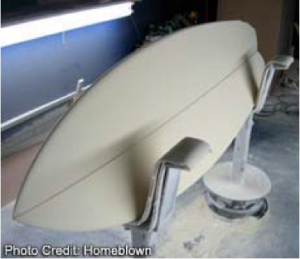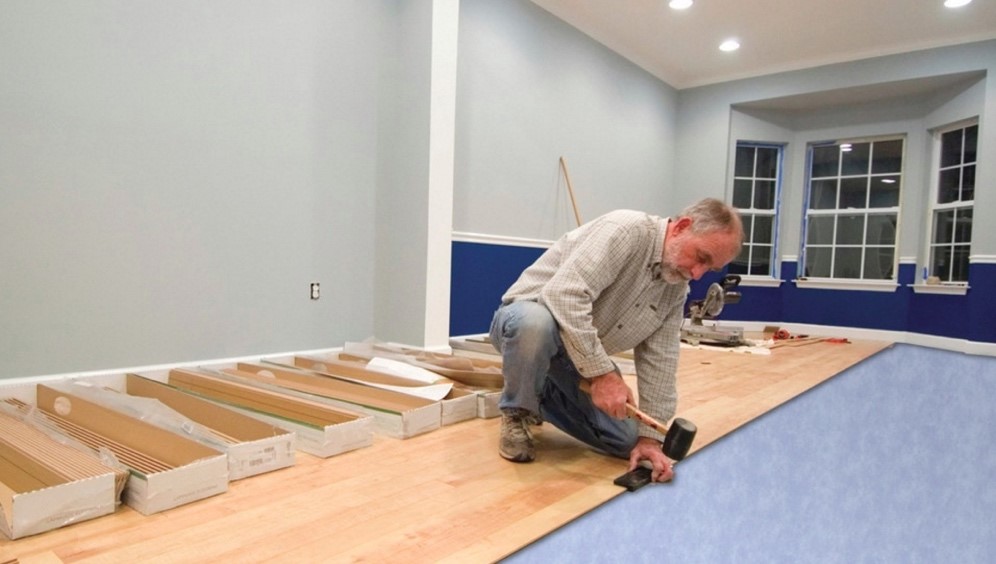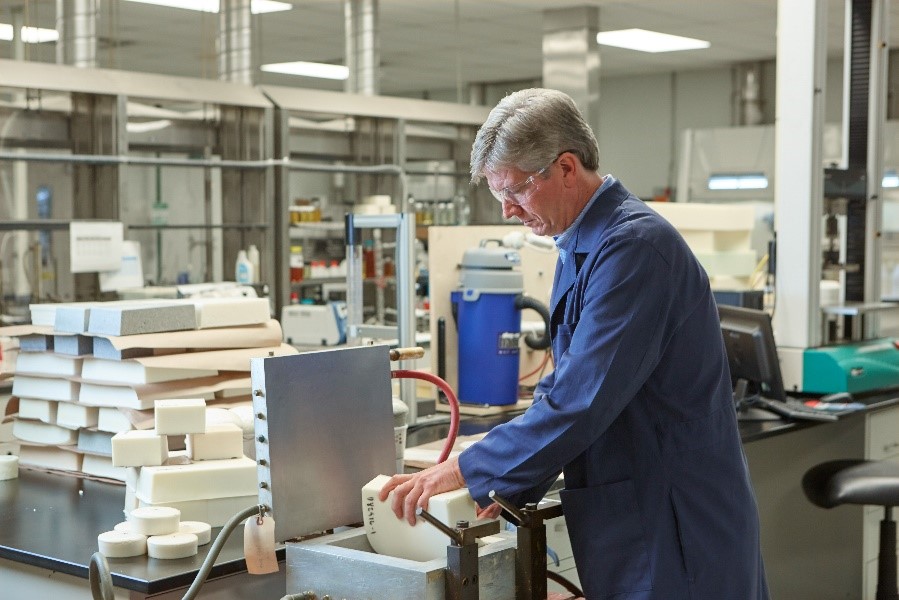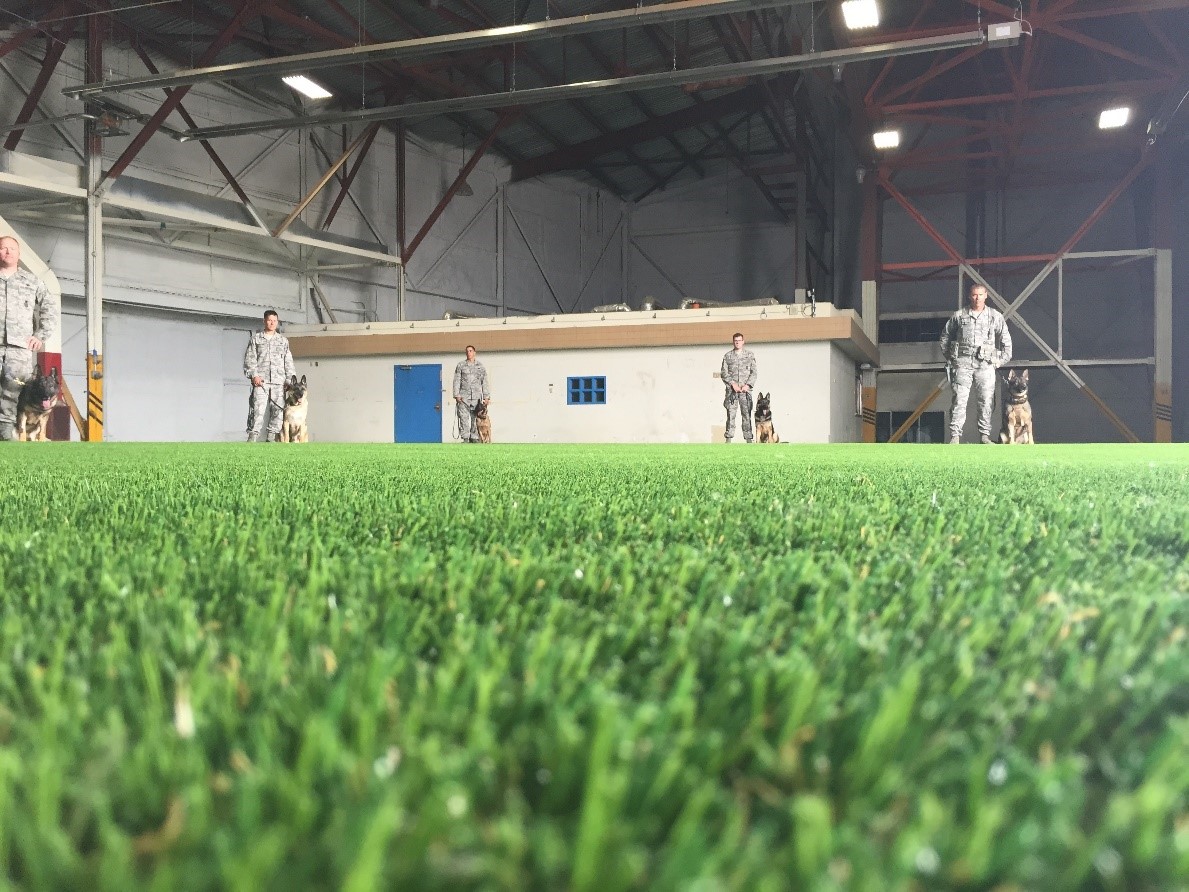Surf’s Up with Soy
January, 2008
Soy is probably far from surfers’ minds when they take to the ocean, but that may be  changing thanks to a new soy-based polyurethane surfboard developed by Homeblown, a San Diego-based company. The United Soybean Board (USB) and the soybean checkoff promote new uses for soy in both mainstream and niche market areas.
changing thanks to a new soy-based polyurethane surfboard developed by Homeblown, a San Diego-based company. The United Soybean Board (USB) and the soybean checkoff promote new uses for soy in both mainstream and niche market areas.
Biofoam is a unique soy foam used in surfboards that contains as much as 50 percent agriculture products, including soy. Foam containing soy exhibits superior hardness relative to foams with conventional materials. Soy foam has a finer and more uniform cell structure than those made with petroleum and the manufacturers of Biofoam found that the soy-based foam performs as well or better than any other foam on the market.
“Soy-based foam performs incredibly well in surfboards,” says Ned McMahon of Homeblown. “To work in surfboards, foam has to have real consistency, compression strength, proper cell structure, weight, no air pockets, a bit of flexibility and a memory to snap back.”
To develop the boards, Homeblown performed a series of tests and looked at cell structure, hardness, and flexibility, before making surfboard “blanks.” The blanks are then tested with a high-pressure machine, before the final test of actually seeing how the board performs in the water.
A preliminary life-cycle analysis indicates that using Biofoam results in 36 percent less global warming emissions, a 61 percent reduction in nonrenewable energy use and a 23 percent reduction in total energy demand.
“We have been extremely happy with the soy polyols vs. petroleum polyols,” says McMahon. “We’re a carbon-neutral company, so we appreciate the environmental aspects of soy products, and the performance of the soy foam matches or exceeds other foams on the market.”
McMahon says that the same type of technology used to make the surfboards is also implemented for architectural models, insulation and other foam products.
“America’s soybean farmers are proud that soy-based products continue to help replace petroleum-based products in more and more consumer products,” says Morgan Beckham, USB director and a soybean farmer from Leland, Miss. “Surfboards made of soy are just one of the many products that soy can be used in to replace petroleum products.”
To learn more about Biofoam, visit www.homeblownus.com/biofoam and for more about new uses for soy, visit www.soynewuses.com.



